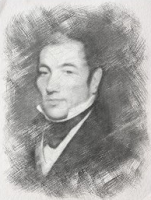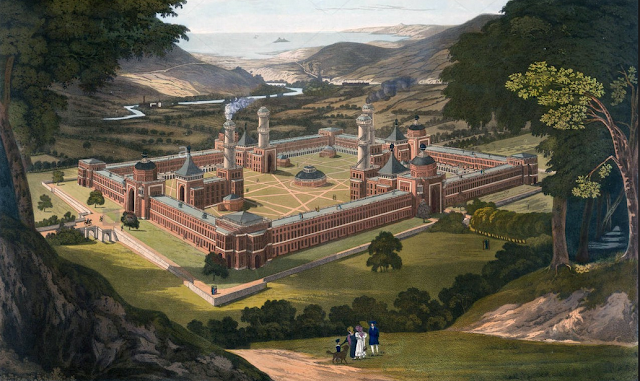In the previous posting on this subject, we noted how, in contrast to today’s super-rich, and traditional capitalists and socialists, when Ebenezer Scrooge saw the light (and the three spirits), and became charitable, he didn’t call it “justice” and he used his own money. He also didn’t consciously control Bob Cratchit, despite the fact that the system of the time pretty much forced employees into a condition of dependency, which a master could make burdensome or easy. Naturally, many masters really rubbed their employees’ noses in it, as they knew their employees were inferior beings or they would have been in charge . . . right?
Not by coincidence, the goal is the same as it always is for those who think themselves better than others, whether they take the modernist view or the socialist position. An élite few always figure they know better than anyone else, whether we’re talking socialists or capitalists. It startles people to learn that the first socialists were capitalists. The only real difference between the capitalist élite and the socialist élite is that the capitalists want to take care of everybody else (at least those they find useful) with other people’s money, while the socialists want the State to take care of everybody else with other people’s money.
 |
| Robert Owen |
For example, Robert Owen, England’s premier capitalist and proto socialist, believed the human race was divided into three groups. At the bottom were “the poor”* who could be guided, taught and taken care of by Robert Owen. In the middle were the people who believed themselves to be educated and owned a bit of capital and so wouldn’t allow themselves to be controlled by Robert Owen. At the top was Robert Owen.
* In the early nineteenth century, “the poor” were wage earners who owned nothing but their labor with which to produce, what today would be called “the working poor.” The destitute without employment were paupers.
At first Owen tried to get other philanthropists to give him money to start his experimental community. When they failed to come across, he went to the British government, who also turned him down. Finally, believing he could make socialism profitable, he used his own money to purchase the economically thriving socialist Rappite community, Harmonie, in the new state of Indiana, renamed it New Harmony, and invited everyone (except black people) to join his utopia.
 |
| Robert Owen's grand design for the Great Parallelogram of New Harmony (never built) |
Come, they did, in droves, but few of them wanted to work and fewer had any skills. New Harmony failed both as a business and as a community, and Owen narrowly escaped bankruptcy. Owen’s experiment was most noted in his day for being the pulpit from which he delivered his famous “Declaration of Mental Independence” speech on July 4, 1826, the fiftieth anniversary of American independence (or at least of the adoption of the Declaration of Independence). To the outrage of every red-blooded American, Owen called for the abolition of organized religion (except his), the abolition of private property (except his), and the abolition of marriage and family (except his).
Today’s super-rich and power-brokering politicos are a bit smarter than Owen, and very carefully avoid using their own money whenever possible. The goal, however, is the same, the establishment and maintenance of a perfect society in this world, “the Kingdom of God (or Whatever) on Earth,” with themselves on top and everybody else below.
 |
| G.K. Chesterton |
This goal requires changing the whole concept of what society is all about. It is no longer to be the chief means by which every individual should have access to the opportunity and means of becoming more fully human and preparing for one’s final end, but of providing for the material wellbeing of those believed to be deserving of it. (The demands always start out as being for all, but very quickly those who gain power become very choosey about who gets full benefits or even is permitted to live.) As Pius XI remarked about this mindset that afflicts adherents of the New Things, it is a concept of society utterly foreign to Christian truth — or any other kind of truth, for that matter.
No, none of this is particularly new, and it continues in full force today. As Chesterton said,
This error then had many forms; but especially, like nearly every it had two forms, a fiercer one which was outside the Church and attacking the Church, and a subtler one, which was inside the Church and corrupting the Church. There has never been a time when the Church was not torn between that invasion and that treason. (G.K. Chesterton, Saint Thomas Aquinas: The “Dumb Ox”. New York: Image Books, 1956, 108.
So how does the honest — and completed and fulfilled — Scrooge fit in? Old Ebenezer (or, actually, Dickens) might never have heard the term “personalism,” but his transformation, conversion, or whatever you want to call it was from someone who (in Dickens’s words) never put his nose outside his counting house to mingle with other people, to a quintessential personalist, i.e., “He became as good a friend, as good a master, and as good a man, as the good old city knew, or any other good old city, town, or borough, in the good old world.”
Still — as we’ve more than hinted — even Honest Scrooge left something out, which we’ll look at in the next posting on this subject.
#30#
